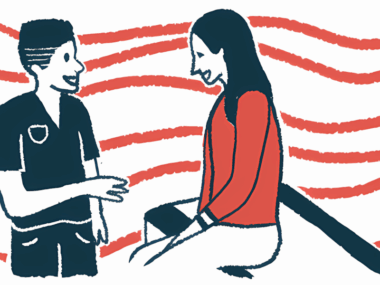Discovering What It Takes to Survive in These Troubled Times
How the words of a fourth-century monk can bring comfort today
Written by |

Unless you’ve been living under a rock or are somehow lucky enough to live on your own desert island, you’ve probably noticed that things are kinda difficult these days. I mean, COVID-19 is still a thing, and now we have monkeypox to deal with. Everyone seems to be at each other’s throats over something, and there are days when all we can do is keep our heads down and push through the day.
Having multiple sclerosis (MS) makes all of this harder. Heat is a problem, as is brain fog, spasticity, and the fatigue that plagues us. But wait! There’s more! We also have to coordinate doctor appointments, research potential medical treatments (and their potential benefits and drawbacks), and manage others’ expectations and opinions of us.
I’ve been reading a lot about the Eastern Orthodox Church lately and have taken a great deal of comfort from the sayings of the Desert Fathers and Mothers. Their wisdom is so clear and direct that it’s no wonder it’s survived countless centuries. I find I can’t help but be moved and inspired by their words and lives.
One quote I’ve been pondering lately, considering how dadgum hard life is these days, is by Abba Poemen, a fourth-century monk who lived in northern Egypt. His name means “shepherd,” which is fitting because he led a large group of fellow men throughout most of his life, seeing to both their physical and spiritual needs. No small task, that.
Monks spend many hours each day in prayer, and some of Poemen’s flock noticed a few of their brothers drifting off during this sacred time. They went to him to ask how he would deal with anyone who committed such a terrible breach of the rules. Poemen simply responded, “I put his head upon my knees and help him to rest.”
Boom. Just like that. He says 12 simple words and everyone involved in the situation gets some much-needed recalibration. “What’s really important?” he’s asking. “Is it adhering perfectly to the rules or loving your neighbor well?” Poemen makes it clear that the latter is what’s called for sometimes. And I think that is especially true for those of us dealing with chronic illnesses like MS.
Yes, it’s always better to be gentle than to be right. After all, Jesus didn’t say perfection in rule keeping would make us his disciples. And it certainly doesn’t draw people to the faith. In contrast, he tells us, “By this everyone will know that you are my disciples, if you love one another” (John 13:35, NIV; emphasis mine).
Rather than trying harder at everything, perhaps the answer is — as therapist and author Aundi Kolber suggests — to “try softer”; to show kindness to ourselves and others and to take a break from white-knuckle living. I know I could certainly use it. You likely could, too. And if it’s true for us, I’m willing to bet others are in deep need of such kindness and compassion as well.
Yes, everything’s pretty much a mess, and things can sometimes feel disheartening. That’s why it’s essential for us to give others (and ourselves) a place to rest, to show a little grace and mercy in a world that’s lacking both.
Peace be with you, friends.
Note: Multiple Sclerosis News Today is strictly a news and information website about the disease. It does not provide medical advice, diagnosis, or treatment. This content is not intended to be a substitute for professional medical advice, diagnosis, or treatment. Always seek the advice of your physician or other qualified health provider with any questions you may have regarding a medical condition. Never disregard professional medical advice or delay in seeking it because of something you have read on this website. The opinions expressed in this column are not those of Multiple Sclerosis News Today or its parent company, Bionews, and are intended to spark discussion about issues pertaining to multiple sclerosis.







Kim Ahmed
Lovely article! Reminding us that the most difficult person to forgive & be gentle with is…ourselves! Why waste energy lamenting over “ what I used to do,places I used to go,etc” Put the love & energy into “what can I do now?”
Jamie Hughes
Exactly, Kim! I'm so glad the article resonated with you, and I thank you for your kind and thoughtful comment. Blessings to you today.